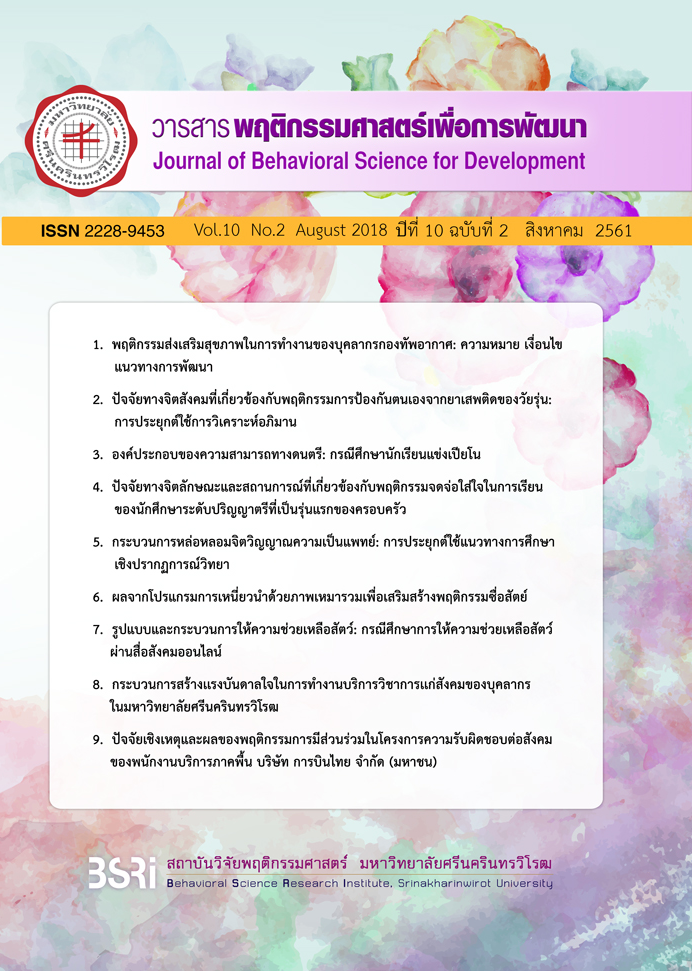ผลจากโปรแกรมการเหนี่ยวนำด้วยภาพเหมารวมเพื่อเสริมสร้างพฤติกรรมซื่อสัตย์
Keywords:
stereotype priming, honesty behavior, self-conceptAbstract
Dishonest behavior is highly prevalent in daily life and impacts a wide range from individual, societal and policy level. The objectives of this research were 1) to determine the effects of stereotype priming program for promoting honest behavior 2) to determine the effects of stereotype priming in different levels of self-concept. To study and strengthen honesty behavior this study used stereotype priming technique which led participants are being more honesty.
A total of 166 participants from two classrooms with the same instructor were randomly assigned to experimental and control group. Each group was divided by levels of self-concept. This study used Mann-Whitney U test to examine difference of honest behavior between group.The results showed that 1) honest behavior was not significantly different between experimental and control group at the .05 level. 2) in the experimental group, honest behavior was not significantly different between high and low self-concept at .05 level. 3) honest behavior of low self-concept in the experimental group was significantly higher than low self-concept in control group at the .05 level. The significance of this study is stereotype priming can promote honest behavior in low self-concept group.



